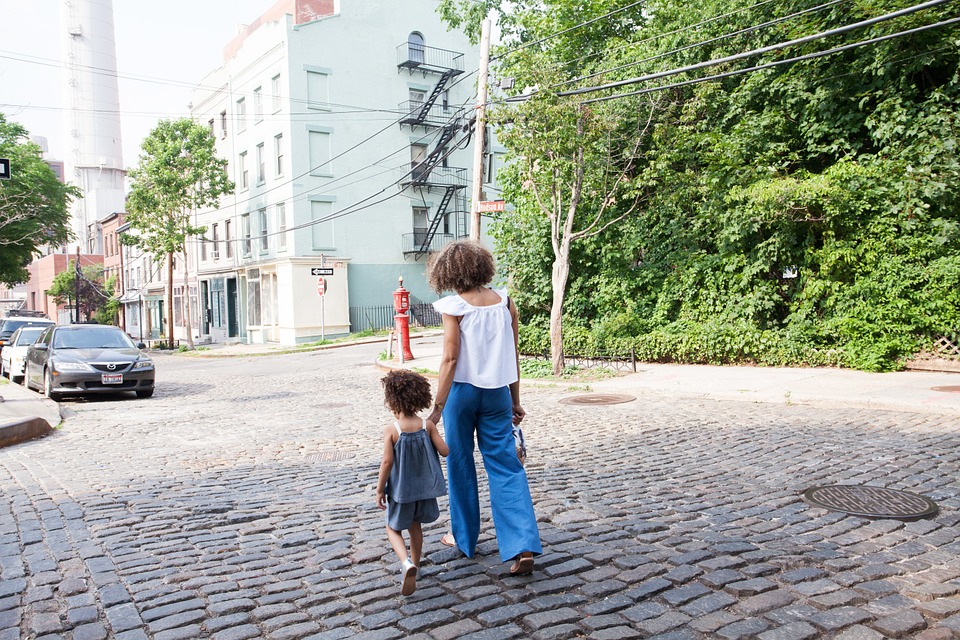
The most potent force in a democracy is the individual, but the most impactful unit of every society is the family, and this is for an apparent reason; The individual is directly, in terms of behavioral and socio-economically, a product of the family from whence he or she emerges. If the family unit of any socio-cultural setting is inept, the quality of individuals it produces will be greatly diminished.
The debate around single parenthood, which predominantly is on the motherly side, is a highly polarizing argument guaranteed to raise emotional dust across both sides of the case. But, I believe, for significant progress to be made in the black community, we must become very comfortable with discussing sensitive matters such as this. We must first heal the family unit within the African-American community to facilitate cultural development.
The relationship between black men and women have continued to undergo unhealthy strain through the previous years, and the implication on subsequent generations is untelling. Many children born in the Black-American community today are likely to grow up in a single-parent home, either by divorce, birth outside wedlock, death of a spouse, or choice by an individual to have offspring as a single parent.
As polarizing and emotionally riling the arguments on single parenthood or motherhood is, there are many nuances to it.
The nuances to the argument can be seen through the moral premise that the debate infringes on individualistic autonomy to choose their path.
And also, the assumption that it is an excuse to downplay the racial bias that affects the distribution of opportunities necessary for socio-economic prosperity for the black community.
Various perceptions of the premise of this argument can be presented. Still, for the sake of clarity, I choose to ignore the moral or ethical case of single parenthood as I agree that the premise is of less significance to my argument. I, however, decide to approach my discussion through a socio-economic and cultural basis. For this, factual statistics can go a long way in demonstrating the crust of my argument.
Ethical or moral considerations for single parenthood aside, it is a verified knowledge that children that are products of single-parent homes are significantly disadvantaged in general approximation than their counterparts from homes with both parents.
Amongst these statistical data, children born into single-parent homes are:
1.4 times more likely to be less engaged
2.5 times more likely to become teen mothers
2 times more likely to drop out of school
In school performance, they are statistically shown to have lower performance, lower grades, lower college aspirations, and lower-class attendance percentages than their counterparts from dual parent’s homes. And, to reduce a refutation based on racial bias, it is essential to note that this pattern remains consistent when adjusted for the difference in race, neighborhood, etc.
It is not difficult to understand why a dual-parent home could work better than a single-parent home. Socio-economically, a household with two-way income has a significant likelihood of staying above the poverty line than one with a single stream of income. Consequently, a family setting where one of the spouses spends more time in the nurture and grooming of the household sees a significant likelihood to stay above the poverty line as the division of roles that might have contributed to impeded career and income growth dilutes the concentration of negative socio-economic forces.
From the perspective of the children within a family setting, kids within a household with both parents have more likelihood of, at any time, at least one parent available to attend to their immediate emotional, financial, and moral needs.
Understanding the ugly implication of single parenthood on not just the children but individuals involved – as they are more likely to work two jobs and spend less time with their kids as a consequence of strangling economic needs, let’s take a look at the percentage of single parenthood in the black community.
The argument that the deterioration of the nuclear family unit will greatly hinder the socio-economic progress of the black community has been present from the ’60s, and as shown above, one can understand the basic theory of why this is so.
In the 1920s, as much as 85% of households in the black community were of nuclear structure.
In the 1960s, there was a significant adjustment to this number to about 75%.
However, this trend continued to rise, as recently as 1991, there was still a 68% figure for nuclear-oriented households in the black community.
Most recently, as estimated, over 72% of black children are born into single-parent homes.
Given the observed disadvantages for children born in single-parent homes, could one rightly assert that even though the impacts of racism still contributes to the socio-economic opportunities experienced by various individuals in the black community, that single parenthood further augments the effects of this disadvantages?
I think, Yes.
Wouldn’t the argument for improved cultural and socio-economic conditions for the black community also channel significant resources into teaching in the contemporary cultural landscape the importance of the nuclear family as the fundamental force behind any healthy socio-cultural or economic arena?
The apparent increase in single-parent homes in the black community could also be interpreted to show the continuous dangerous strain in the relationship between black men and women. We, as a people, must focus our energy into achieving sufficient cultural healing, reorientation to the importance of nuclear and extended family structures.





